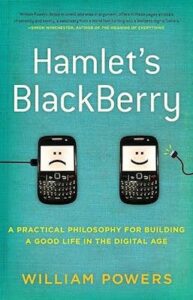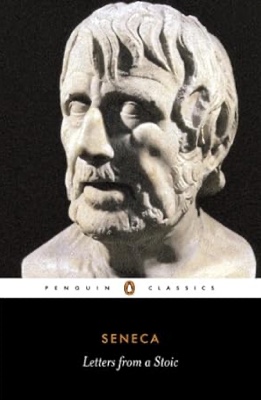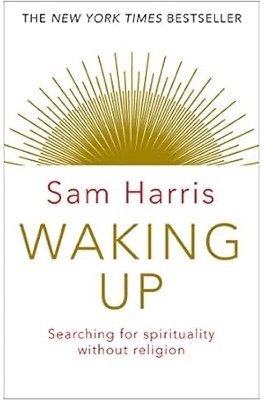 “Hamlet’s BlackBerry: A Practical Philosophy for Building a Good Life in the Digital Age“, written by William Powers, delves into the challenges and distractions of our constantly connected, digital world. Published in 2010, the book critiques the notion that more digital connectivity equates to a better life, arguing instead that it often leads to a cluttered, distracted mind and a less fulfilling life.
“Hamlet’s BlackBerry: A Practical Philosophy for Building a Good Life in the Digital Age“, written by William Powers, delves into the challenges and distractions of our constantly connected, digital world. Published in 2010, the book critiques the notion that more digital connectivity equates to a better life, arguing instead that it often leads to a cluttered, distracted mind and a less fulfilling life.
Powers explores the idea that while technology has brought incredible benefits, it also demands our constant attention, leading to a sense of overwhelm and a difficulty in finding time for reflection, deep thought, and real-life interactions. The title refers to a device mentioned in Shakespeare’s “Hamlet,” a kind of early modern “BlackBerry,” symbolizing the timeless human struggle with managing technology and information overload.
Drawing on the wisdom of philosophers, writers, and thinkers from history—such as Socrates, Seneca, Gutenberg, Shakespeare, Franklin, Thoreau, and McLuhan—Powers presents seven philosophies or strategies for achieving a more balanced digital life. These historical figures, each faced with their own version of information overload, provide insights into how to create space for solitude, reflection, and deeper connections in our lives, despite the allure of the screen.
Powers suggests practical steps for individuals and families to manage their digital devices more effectively, advocating for “Internet Sabbaths” or periods of time where digital devices are turned off to focus on offline activities and interactions. He emphasizes the importance of creating boundaries around our use of technology to preserve our inner lives and maintain meaningful relationships.
“Hamlet’s BlackBerry” challenges readers to rethink their relationship with digital technology, advocating for a more mindful and intentional approach. It offers a blend of historical perspective, personal reflection, and actionable advice for navigating the complexities of the digital age, ultimately arguing for a balance that allows for both technological engagement and personal fulfillment.





